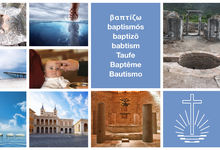The Sacraments (54): The chances in the hereafter
Sacraments for the departed? That only makes sense if people can still change in death. Judging by the teachings of their church, the majority of Christians believe in a chance in the afterlife. But there are big differences between the churches.

What is the beyond like? Dark and gloomy, that at least is the original answer in the Old Testament. The dead go to the underworld, called Sheol, where they all sleep.
Soon, however, the conviction develops that good and bad people have a very different fate awaiting them. This conviction is carried into the New Testament, as the parable of poor Lazarus shows.
Where to stay until the resurrection?
The boundary between life and death is blurred: the Bible speaks of raptures and resurrections. This is how late writings of the Old Testament develop the hope of a general resurrection, at least of the righteous. This is reinforced with the translation of the Hebrew Bible into Greek.
Sheol and the Greek Hades are then joined to form a state of waiting between death and resurrection. Indications that the soul can still change at this point are at best found in intertestamental books, the Apocrypha.
At the time of Jesus, progressive Pharisees and conservative Sadducees were still arguing over this. However, Christians accepted the concepts of heaven for the good and hell for the bad, as well as the intermediate existence between the end of life and the end of the world.
A second chance
The Church Fathers of the Western Roman Empire went on to introduce a third interim state: purgatory. The central idea behind this was that hardly anyone could ever be so good or bad to be eternally condemned at the Last Judgement. Thus the average sinner was to be given a chance to undergo a process of purification. The duration of purification can be shortened: if the living pray for the dead, take part in masses, or do charitable works.
This is still the teaching of the Catholic Churches today. Theologians, however, do point out that heaven and hell are not places but states of mind—depending on how close or far away one is from God. And in the case of purgatory, it is repentance and desire burn.
A second chance for all
The Orthodox Churches teach the existence of paradise and hell. Again, these are not places, but states of mind: on one hand, bliss resulting from an overabundance of love from the relationship with Christ, on the other hand, suffering as a result of the lack of participation in God.
These states are temporary and changeable. The prayers of the living, especially in the celebration of Holy Communion, can help the dead. The Catholic doctrine of purgatory is rejected by the Orthodox churches. One reason for this is that only some of the dead can change.
Asleep or completely dead
The Protestant churches have an issue with the doctrine of purgatory especially since the abuse of this doctrine, including corruption, was a spark for the Reformation. Above all, the idea of purification does not fit into the concept of the doctrine of justification.
Instead, the Church Father Martin Luther advocated soul sleep: “When we have died, everyone”—felt immediately—“will have their day of judgment.” Most recently, the so-called total-death theory dominated: the concept does not recognise an immortal soul, but assumes the destruction of the individual and its new creation in the resurrection.
A development of the soul in the hereafter is impossible for the churches of the Reformed tradition.
The sacrifice of Christ makes it possible
The New Apostolic Church disputes such an immutability in its Catechism (CNAC):
- Human beings live on after physical death. While the body is transitory, the soul will continue to live forever. (CNAC 9.3)
- The condition of the souls in the beyond is an expression of their proximity to God, or remoteness from Him, and is the same there as it was during their lifetime. (CNAC 9.5)
- Ever since Christ brought His sacrifice, it has been possible for the condition of the souls in the beyond to change for the better.(CNAC 9.6)
- Jesus Christ is Lord over the dead and the living. It is the desire of God that all men be saved. (CNAC 9.6.3)
God’s universal will to save is one of three pillars that theologically support the New Apostolic Church’s construct of the departed. This and the two other pillars will be discussed in the next articles of this series.
Photo: Krisztin - stock.adobe.com
Article info
Author:
Date:
Keywords:
Andreas Rother
26.04.2022
sacraments,
divine services for ministers










